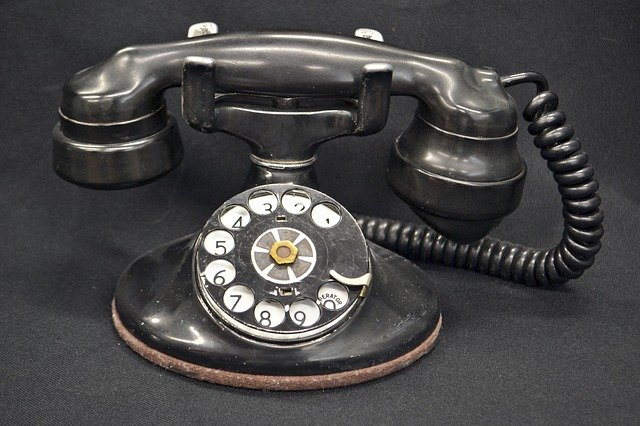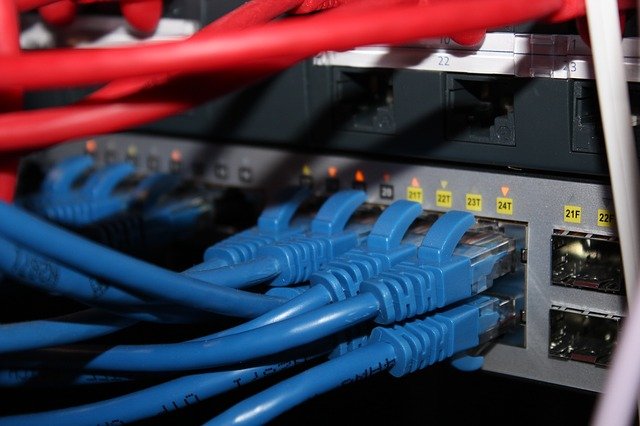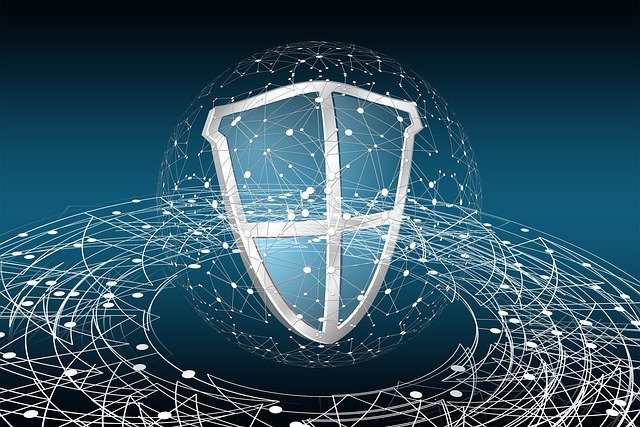The Latest News
FCC | Broadband | Wireless | Congress
FCC Notice Of Inquiry To Review Quality Of Customer Support Provided By Cable, Broadband, Satellite TV, & Voice Service Providers
October 23, 2024 – The Federal Communications Commission (FCC) has issued a Notice Of Inquiry (NOI) to review the quality of support that cable, broadband, satellite TV, and voice service providers give their customers. The NOI, adopted by a vote of 3-2, “seeks to build a public record on the current state of customer support and ways that the FCC can further protect families and businesses that rely on these critical services.” Comments are due on or before November 22, 2024. Reply comments are due December 9, 2024. The NOI seeks comment on issues that fall within six separate categories:
Simple Cancellation – Providing more cancellation options and better disclosure of cancellation practices at the point of sale and on bills.
Automatic Renewal of Service – Ensuring providers obtain explicit customer consent for broadband and voice service providers before automatically renewing a service and/or increasing prices after a trial or promotional period expires.
Access to Live Representatives – Helping to avoid bouncing consumers from one call menu list to another in a time-consuming effort to obtain resolution.
Installation, Outage, and Service Calls – Extending cable operator installation, outage, and service call rules to also apply to satellite TV, voice, and broadband services.
Individuals with Disabilities and Speakers of English as a Second Language – Improving the accessibility of customer service resources for individuals with disabilities.
Cable-Specific Issues – Local Franchise Authority Developments; State of Existing Customer Service Standards; and Potential New Customer Service Standards and Enforcement.
Mercury Broadband Defaults On RDOF Awards In Illinois, Indiana, Michigan, & Missouri
October 22, 2024 – Mercury Broadband, LLC has notified the FCC’s Wireline Competition Bureau that it has decided to default on Rural Digital Opportunity Fund (RDOF) awards in census block groups in Illinois, Indiana, Michigan, and Missouri. Specifically, Mercury Broadband has defaulted on its RDOF awards for 34 census block groups in Illinois, 21 census block groups in Indiana, 64 census block groups in Michigan, and 10 census block groups in Missouri. The company made the decision to default partly based on deployment costs that “have increased dramatically since Mercury made its bids in the RDOF reverse auction.” Mercury Broadband will no longer be entitled to receive further RDOF support for the surrendered RDOF-awarded census block groups and will be subject to non-compliance penalties.
Cable One VoIP LLC d/b/a Sparklight Defaults On RDOF Awards In Idaho
October 17, 2024 – Cable One VoIP LLC d/b/a Sparklight has notified the Federal Communications Commission that it is defaulting on its Rural Digital Opportunity Fund (RDOF) awards in the state of Idaho. Sparklight was authorized to receive a total of $3,225,684 in RDOF support over ten years to provide voice and broadband to 863 locations in Idaho. The company claims that its “planned RDOF deployment in Idaho is no longer viable due to unforeseeable costs that have increased dramatically since the conclusion of the RDOF auction.” As a result of its default, Sparklight will no longer be entitled to receive further RDOF support and will be subject to non-compliance penalties.
Fidelity Cablevision Defaults On RDOF Awards In Missouri
October 17, 2024 – Fidelity Cablevision, LLC has notified the Federal Communications Commission that it is defaulting on its Rural Digital Opportunity Fund (RDOF) awards in the state of Missouri. The company was awarded a total of $37,979 in RDOF support over ten years to provide voice and broadband to 39 locations in Missouri. Fidelity Cablevision claims that its “planned RDOF deployment in Missouri is no longer viable due to unforeseeable costs that have increased dramatically since the conclusion of the RDOF auction.” As a result of its default, Fidelity Cablevision will no longer be entitled to receive further RDOF support and will be subject to non-compliance penalties.
FCC Issues Notice Of Inquiry To Review Broadband Data Caps
October 15, 2024 – The Federal Communications Commission (FCC) has issued a Notice Of Inquiry (NOI) aimed at gaining a better understanding of the current state of data caps (also referred to as “usage allowances” or “usage limits”) and whether data caps cause harm to competition or consumers’ ability to access broadband Internet access services. Comments are due on or before November 14, 2024. Reply comments are due December 2, 2024.
The FCC describes data caps as restrictions set by Fixed and mobile broadband Internet access service providers on the volume of bits that a subscriber can transfer during a set period of time. Depending on the type of data cap, when the cap’s amount is exceeded, a subscriber may be subject to higher fees, slower speeds, and suspension or termination of service. In the NOI, the FCC requests comment on the following issues:
The current state of data caps for both fixed and mobile broadband Internet service, and how data caps may impact consumers and competition.
Why the use of data caps continues to persist despite increased broadband needs of consumers and providers’ demonstrated technical ability to offer unlimited data plans.
The current trends in consumer data usage.
The impact of data caps on consumers, consumers’ experience with data caps, and how consumers are informed about data caps on service offerings.
The impact of data caps on competition.
The FCC’s legal authority to take action regarding data caps.
Q Link Wireless CEO Pleads Guilty To Stealing Over $100 Million From The FCC’s Lifeline Program
October 15, 2024 – Q Link Wireless, LLC and its CEO, Issa Asad, have pleaded guilty to conspiring to defraud the U.S. government in connection with a years-long scheme to steal over $100 million from the universal service Lifeline program. Mr. Asad also admitted to defrauding and laundering money from the Paycheck Protection Program (PPP), a government program created to help businesses during the COVID-19 pandemic.
Asad began defrauding the Lifeline program as early as 2012 and continued through at least 2021 “by making repeated false claims for reimbursement, taking and retaining Lifeline funds that it was not entitled to receive, providing false information about its Lifeline customers, and deceiving the FCC about its compliance with program rules. Asad directed these illegal activities and conspired with others to commit the fraud.” When Mr. Asad and other Q Link Wireless employees learned that the Federal Communications Commission (FCC) was investigating them for Lifeline compliance, they “created and provided false records to the FCC to conceal the scam and to continue collecting reimbursement.
As part of a plea agreement, Asad is facing a statutory maximum sentence of 5 years’ imprisonment on Count 1 and 5 years’ imprisonment on Count 2. The exact sentence will be determined by the U.S. District Court for the Southern District of Florida after considering the sentencing guidelines and other statutory factors. In connection with the Lifeline fraud, Asad and Q Link will pay jointly $109,637,057 in restitution to the FCC. Asad will pay $1,758,339.25 in restitution to the U.S. Small Business Administration, and will pay a forfeiture judgment against him of at least $17,484,118.
Final Agenda For FCC Open Meeting On October 17, 2024
October 10, 2024 – The Federal Communications Commission has released the final agenda for its next Open Meeting set for Thursday, October 17, 2024, at 10:30 a.m. in the FCC’s meeting room. The FCC’s meeting is open to the public, but all guests must check in with and be screened by FCC security at the main entrance. All FCC open meetings are streamed live at: www.fcc.gov/live and on the FCC’s YouTube channel.
Achieving 100% Wireless Handset Model Hearing Aid Compatibility (WT Docket No. 23-388) – The Commission will consider a Report and Order adopting a 100% hearing aid compatibility requirement for all wireless handset models offered for sale or use in the United States and implementation provisions related to this requirement.
Implementation of the National Suicide Hotline Act of 2018 (WC Docket No. 18-336) – The Commission will consider a Third Report and Order and Third Further Notice of Proposed Rulemaking that would adopt rules requiring wireless providers to implement a georouting solution for 988 calls to ensure that the 988 Suicide & Crisis Lifeline can connect callers to geographically appropriate crisis centers based on the caller’s general location. The Third Further Notice would also propose and seek comment on requiring covered text providers to support georouting for covered 988 text messages.
Restricted Adjudicatory Matter – The Commission will consider a restricted adjudicatory matter from the Media Bureau.
Connect2Health Task Force – The Commission will receive a presentation from the Connect2Health Task Force on updates to maternal health data in the Mapping Broadband Health in America platform.
FCC Announces New Chief Technology Officer Andy Hendrickson
October 3, 2024 – The Federal Communications Commission’s Enforcement Bureau has established a Chief Technology Officer position within the Bureau, and has announced that Andy Hendrickson will fill the role. In his role as Bureau CTO, Mr. Hendrickson will “provide strategic and technical advice on technological developments and issues with respect to the Enforcement Bureau’s work and as part of the ongoing effort to strengthen the Bureau’s technical expertise in support of its privacy, data protection, cybersecurity, and network outage enforcement work.” Mr. Hendrickson also will work with the FCC’s Privacy and Data Protection Task Force on issues such as data breaches of telecommunications, cable, and satellite providers; network outages caused by cyberattacks; and supply chain vulnerabilities involving third-party vendors that service regulated communications providers, including cloud providers.
FCC & DOJ Release Cybersecurity Resource Guide For Schools & Libraries
October 2, 2024 – The Federal Communications Commission and the Department of Education, with the help of the Cybersecurity and Infrastructure Security Agency, have released a resource guide to help schools and libraries evaluate cybersecurity risks and identify their most impactful cybersecurity solutions. The guide is intended to help schools and libraries complete applications for the FCC’s Schools and Libraries Cybersecurity Pilot Program which will provide up to $200 million to selected schools and libraries to defray the costs of cybersecurity equipment and services.
Mergers & Acquisitions: Aristotle Unified Communications Transferring Missouri CAF Phase II Locations To Wisper ISP
October 1, 2024 – The FCC’s Wireline Competition Bureau is seeking public comment on a Section 214 transfer of control application filed by Aristotle Unified Communications Inc. (Aristotle) and Wisper ISP, LLC (Wisper), requesting consent to assign Aristotle’s domestic section 214 authorization for its State of Missouri Connect America Fund (CAF) Phase II auction locations (Assigned Census Blocks) to Wisper. Following consummation, Wisper will assume the deployment, performance, and other obligations for the Assigned Census Blocks. Comments are due on or before October 4, 2024. Reply comments are due October 11, 2024.
Aristotle is an Arkansas corporation that provides voice and broadband service in rural communities using fixed wireless and fiber. Aristotle has been authorized to receive $3,001,544.70 in CAF Phase II support for the Assigned Census Blocks in Missouri to deploy voice and 25/3 Mbps broadband service to 788 locations.
Wisper is a Delaware limited liability company that provides fixed wireless or fiber-based broadband and voice services to approximately 20,000 residential and business subscribers in Arkansas, Illinois, Indiana, Kansas, Missouri, and Oklahoma. Wisper has been designated an Eligible Telecommunications Carrier to receive CAF Phase II support of approximately $220 million to serve 80,149 locations in Arkansas, Illinois, Indiana, Kansas, Missouri, and Oklahoma
Pursuant to an Assignment and Assumption Agreement, Wisper will acquire the Assigned Census Blocks, assets Aristotle has acquired with CAF support, unexpended CAF support, and the right to receive future CAF support. And, Wisper will assume the deployment and performance obligations and any compliance gap consequences associated therewith.









